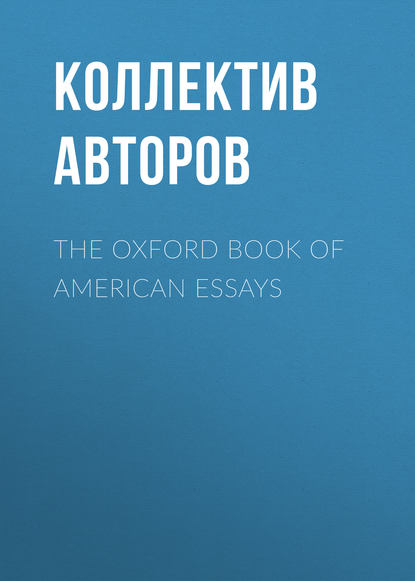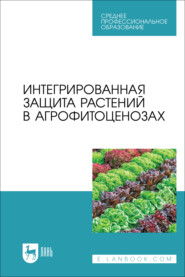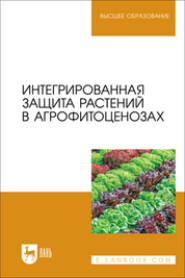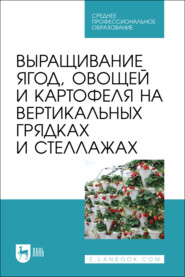По всем вопросам обращайтесь на: info@litportal.ru
(©) 2003-2024.
✖
The Oxford Book of American Essays
Настройки чтения
Размер шрифта
Высота строк
Поля
The soil of history may be so rich that it nourishes all manner of noxious things side by side with flowers of glorious beauty; this is the price we pay for fertility. A thin soil, on the other hand, sends a few flowers of delicate structure and haunting fragrance into the air, like the arbutus and the witchiana, which express the clean, dry sod of Cape Cod, and are symbolic of the poverty and purity of its history. Thoreau reports that in one place he saw advertised, "Fine sand for sale here," and he ventures the suggestion that "some of the street" had been sifted. And, possibly, with a little tinge of malice after his long fight with winds and shore-drifts, he reports that "in some pictures of Provincetown the persons of the inhabitants are not drawn below the ankles, so much being supposed to be buried in the sand." "Nevertheless," he continues, "natives of Provincetown assured me that they could walk in the middle of the road without trouble, even in slippers, for they had learned how to put their feet down and lift them up without taking in any sand." On a soil so light and porous there is a plentiful harvesting of health and substantial comfort, but not much chance of poetry.
In the country of Theocritus there was great chance for poetry; not because anybody was taught anything, but because everybody was born in an atmosphere that was a diffused poetry. If this had not been true, the poet could not have spread a soft mist of poesy over the whole island: no man works that kind of magic unaided; he compounds his potion out of simples culled from the fields round him. Theocritus does not disguise the rudeness of the life he describes; goat-herds and he-goats are not the conventional properties of the poetic stage. The poet was without a touch of the drawing-room consciousness of crude things, though he knew well softness and charm of life in Syracuse under a tyrant who did not "patronize the arts," but was instructed by them. To him the distinction between poetic and unpoetic things was not in the appearance, but in the root. He was not ashamed of Nature as he found her, and he never apologized for her coarseness by avoiding things not fit for refined eyes. His shepherds and goat-herds are often gross and unmannerly, and as stuffed with noisy abuse as Shakespeare’s people in "Richard III." Lacon and Cometas, rival poets of the field, are having a controversy, and this is the manner of their argument:
"LACON
"When learned I from thy practice or thy preaching aught that’s right,
Thou puppet, thou mis-shapen lump of ugliness and spite?
"COMETAS
"When? When I beat thee, wailing sore; your goats looked on with glee,
And bleated; and were dealt with e’en as I had dealt with thee."
And then, without a pause, the landscape shines through the noisy talk:
"Nay, here are oaks and galingale: the hum of housing bees
Makes the place pleasant, and the birds are piping in the trees,
And here are two cold streamlets; here deeper shadows fall
Than yon place owns, and look what cones drop from the pine tree tall."
Thoreau, to press the analogy from painting a little further, lays the undertones on with a firm hand: "It is a wild, rank place and there is no flattery in it. Strewn with crabs, horse-shoes, and razor-clams, and whatever the sea casts up, – a vast morgue, where famished dogs may range in packs, and cows come daily to glean the pittance which the tide leaves them. The carcasses of men and beasts together lie stately up upon its shelf, rotting and bleaching in the sun and waves, and each tide turns them in their beds, and tucks fresh sand under them. There is naked Nature, – inhumanely sincere, wasting no thought on man, nibbling at the cliffy shore where gulls wheel amid the spray."
It certainly is naked Nature with a vengeance, and it was hardly fair to take her portrait in that condition. Theocritus would have shown us Acteon surprising Artemis, not naked, but nude; and there is all the difference between nakedness and nudity that yawns between a Greek statue and a Pompeiian fresco indiscreetly preserved in the museum at Naples. Theocritus shows Nature nude, but not naked; and it is worth noting that the difference between the two lies in the presence or absence of consciousness. In Greek mythology, nudity passes without note or comment; the moment it begins to be noted and commented upon it becomes nakedness.
Theocritus sees Nature nude, as did all the Greek poets, but he does not surprise her when she is naked. He paints the undertones faithfully, but he always lays on the overtones, and so spreads the effulgence of the sky-stream over the undertones, and the picture becomes vibrant and luminous. The fact is never slurred or ignored; it gets full value, but not as a solitary and detached thing untouched by light, unmodified by the landscape. Is there a more charming impression of a landscape bathed in atmosphere, exhaling poetry, breathing in the very presence of divinity, than this, in Calverley’s translation:
"I ceased. He, smiling sweetly as before,
Gave me the staff, 'the Muses’'
And leftward sloped toward Pyxa. We the while
Bent us to Phrasydene’s, Eucritus and I,
And baby-faced Amyntas: there we lay
Half-buried in a couch of fragrant reed
And fresh-cut vine leaves, who so glad as we?
A wealth of elm and poplar shook o’erhead;
Hard by, a sacred spring flowed gurgling on
From the Nymphs’ grot, and in the somber boughs
The sweet cicada chirped laboriously.
Hid in the thick thorn-bushes far away
The tree frog’s note was heard; the crested lark
Sang with the goldfinch; turtles made their moan;
And o’er the fountain hung the gilded bee.
All of rich summer smacked, of autumn all:
Pears at our feet, and apples at our side
Rolled in luxuriance; branches on the ground
Sprawled, overweighted with damsons; while we brushed
From the cask’s head the crust of four long years.
Say, ye who dwell upon Parnassian peaks,
Nymphs of Castalia, did old Chiron e’er
Set before Hercules a cup so brave
In Pholus’ cavern – did as nectarous draughts
Cause that Anapian shepherd, in whose hand
Rocks were as pebbles, Polypheme the strong,
Featly to foot it o’er the cottage lawns: —
As, ladies, ye bid flow that day for us
All by Demeter’s shrine at harvest-home?
Beside whose corn-stacks may I oft again
Plant my broad fan: while she stands by and smiles,
Poppies and corn-sheaves on each laden arm."
Here is the landscape seen with a poet’s eye, and the color and shining quality of a landscape, it must be remembered, are in the exquisitely sensitive eye that sees, not in the structure and substance upon which it rests. The painter and poet create nature as really as they create art, for in every clear sight of the world we are not passive receivers of impressions, but partners in that creative work which makes nature as contemporaneous as the morning newspaper.
It is true, Sicily was poetic in its very structure while Cape Cod is poetic only in oases, bits of old New England shade and tracery of elms, the peace of ancient sincerity and content honestly housed, the changing color of marshes in whose channels the tides are singing or mute; but the Sicily of Theocritus was seen by the poetic eye. In every complete vision of a landscape what is behind the eye is as important as what lies before it, and behind the eyes that looked at Sicily in the third century, B.C., there were not only the memories of many generations, but there was also a faith in visible and invisible creatures which peopled the world with divinities. The text of Theocritus is starred with the names of gods and goddesses, of heroes and poets: it is like a rich tapestry, on the surface of which history has been woven in beautiful colors; the flat surface dissolves in a vast distance, and the dull warp and woof glows with moving life.
The Idylls are saturated with religion, and as devoid of piety as a Bernard Shaw play. Gods and men differ only in their power, not at all in their character. What we call morals were as conspicuously absent from Olympus as from Sicily. In both places life and the world are taken in their obvious intention; there was no attempt, apart from the philosophers, who are always an inquisitive folk, to discover either the mind or the heart of things. In the Greek Bible, which Homer composed and recited to crowds of people on festive occasions, the fear of the gods and their vengeance are set forth in a text of unsurpassed force and vitality of imagination; but no god in his most dissolute mood betrays any moral consciousness, and no man repents of sins. That things often go wrong was as obvious then as now, but there was no sense of sin. There were Greeks who prayed, but none who put dust on his head and beat his breast and cried, "Woe unto me, a sinner!" There were disasters by land and sea, but no newspaper spread them out in shrieking type, and by skillful omission and selection of topics wore the semblance of an official report of a madhouse; there were diseases and deaths, but patent-medicine advertisements had not saturated the common mind with ominous symptoms; old age was present with its monitions of change and decay:
"Age o’ertakes us all;
Our tempers first; then on o’er cheek and chin,
Slowly and surely, creep the frosts of Time.
Up and go somewhere, ere thy limbs are sere."
Theocritus came late in the classical age, and the shadows had deepened since Homer’s time. The torches on the tombs were inverted, the imagery of immortality was faint and dim; but the natural world was still naturally seen, and, if age was coming down the road, the brave man went bravely forward to meet the shadow.
It was different on Cape Cod. Even Thoreau, who had escaped from the morasses of theology into the woods and accomplished the reversion to paganism in the shortest possible manner, never lost the habit of moralizing, which is a survival of the deep-going consciousness of sin. Describing the operations of a sloop dragging for anchors and chains, he gives his text those neat, hard touches of fancy which he had at command even in his most uncompromising, semi-scientific moments: "To hunt to-day in pleasant weather for anchors which had been lost, – the sunken faith and hope of mariners, to which they trusted in vain; now, perchance it is the rusty one of some old pirate ship or Norman fisherman, whose cable parted here two hundred years ago, and now the best bower anchor of a Canton or California ship which has gone about her business."
And then he drops into the depths of the moral subconsciousness from which the clear, clean waters of Walden Pond could not wash him: "If the roadsteads of the spiritual ocean could be thus dragged, what rusty flukes of hope deceived and parted chain-cables of faith might again be windlassed aboard! enough to sink the finder’s craft, or stock new navies to the end of time. The bottom of the sea is strewn with anchors, some deeper and some shallower, and alternately covered and uncovered by the sand, perchance with a small length of iron cable still attached, to which where is the other end?.. So, if we had diving bells adapted to the spiritual deeps, we should see anchors with their cables attached, as thick as eels in vinegar, all wriggling vainly toward their holding ground. But that is not treasure for us which another man has lost; rather it is for us to seek what no other man has found or can find." The tone is light, almost trifling, when one takes into account the imagery and the idea, and the subconsciousness is wearing thin; but it is still there.
Thoreau’s individual consciousness was a very faint reflection of an ancestral consciousness of the presence of sin, and of moral obligations of an intensity almost inconceivable in these degenerate days. There was a time in a Cape Cod community when corporal punishment was inflicted on all residents who denied the Scriptures, and all persons who stood outside the meeting-house during the time of divine service were set in the stocks. The way of righteousness was not a straight and narrow path, but a macadamized thoroughfare, and woe to the man who ventured on a by-path! One is not surprised to learn that "hysteric fits" were very common, and that congregations were often thrown into the utmost confusion; for the preaching was far from quieting. "Some think sinning ends with this life," said a well-known preacher, "but it is a mistake. The creature is held under an everlasting law; the damned increase in sin in hell. Possibly, the mention of this may please thee. But, remember, there shall be no pleasant sins there; no eating, drinking, singing, dancing; wanton dalliance, and drinking stolen waters; but damned sins, bitter, hellish sins; sins exasperated by torments; cursing God, spite, rage, and blasphemy. The guilt of all thy sins shall be laid upon thy soul, and be made so many heaps of fuel… He damns sinners heaps upon heaps."
It is not surprising to learn that as a result of such preaching the hearers were several times greatly alarmed, and "on one occasion a comparatively innocent young man was frightened nearly out of his wits." One wonders in what precise sense the word "comparatively" was used; it is certain that those who had this sense of the sinfulness of things driven into them were too thoroughly frightened to see the world with the poet’s eye.
In Sicily nobody was concerned for the safety of his soul; nobody was aware that he had a soul to be saved. Thoughtful people knew that certain things gave offense to the gods; that you must not flaunt your prosperity after the fashion of some American millionaires, who have discovered in recent years that there is a basis of fact for the Greek feeling that it is wise to hold great possessions modestly; that certain family and state relations are sacred, and that the fate of Œdipus was a warning: but nobody was making observations of his own frame of mind; there were no thermometers to take the spiritual temperature.
In his representative capacity as poet, Theocritus, speaking for his people, might have said with Gautier, "I am a man for whom the visible world exists." It is as impossible to cut the visible world loose from the invisible as to see the solid stretch of earth without seeing the light that streams upon it and makes the landscape; but Gautier came as near doing the impossible as any man could, and the goat-herds and pipe-players of Theocritus measurably approached this instable position. On Cape Cod, it is true, they looked "up and not down," but it is also true that they "looked in and not out"; in Sicily they looked neither up nor down, but straight ahead. The inevitable shadows fell across the fields whence the distracted Demeter sought Persephone, and Enceladus, uneasily bearing the weight of Ætna, poured out the vials of his wrath on thriving vineyards and on almond orchards white as with sea-foam; but the haunting sense of disaster in some other world beyond the dip of the sea was absent. If the hope of living with the gods was faint and far, and the forms of vanished heroes were vague and dim, the fear of retribution beyond the gate of death was a mere blurring of the landscape by a mist that came and went.
The two workmen whose talk Theocritus overhears and reports in the Tenth Idyll are not discussing the welfare of their souls; they are not even awake to the hard conditions of labor, and take no thought about shorter hours and higher wages: they are interested chiefly in Bombyca, "lean, dusk, a gypsy,"
" …twinkling dice thy feet,
Poppies thy lips, thy ways none knows how sweet!"
And they lighten the hard task of the reaper of the stubborn corn in this fashion:
"O rich in fruit and corn-blade: be this field
Tilled well, Demeter, and fair fruitage yield!
"Bind the sheaves, reapers: lest one, passing, say —
'A fig for these, they’re never worth their pay!'
"Let the mown swathes look northward, ye who mow,

















